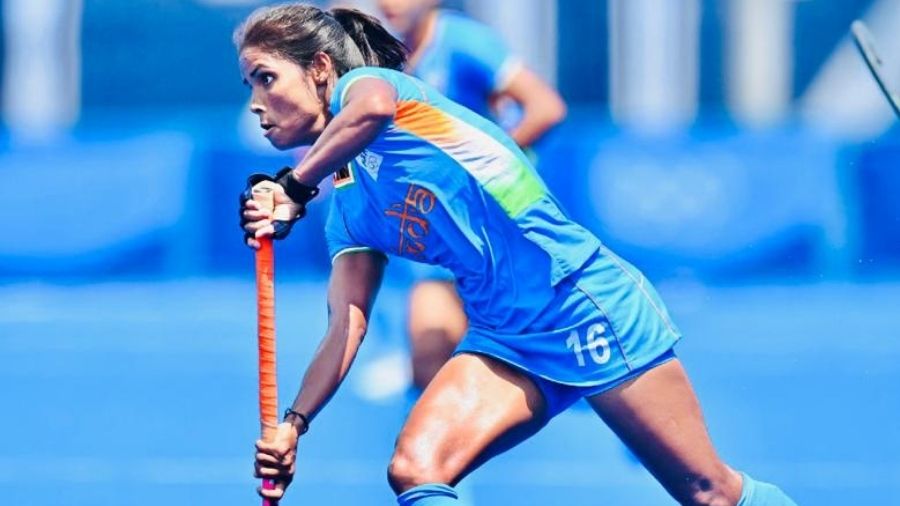As India celebrated its highest ever medal tally in the just concluded Tokyo Olympics, it was a classic case of so-near-yet-so-far for the Indian women’s hockey team. While the nation wholeheartedly applauded the efforts of the defiant ladies who braved innumerable hardships to produce a phenomenal performance in Tokyo, the team’s striker Vandana Katariya is still bearing the scar of that 3-4 defeat to Great Britain in the Bronze medal match.
“Losing that match hurt,” she says thrice during the course of her telephonic conversation with The Telegraph Online.
Vandana has been a pillar of strength for the women’s hockey team, having scored that all-important hat trick against South Africa in the do-or-die match which helped the team reach the quarter-finals of the competition. However, the 29-year-old refuses to take credit for the deed, saying, “Although I scored the goals, it was a result of the effort of the entire team. Without them, it would never have been possible.”
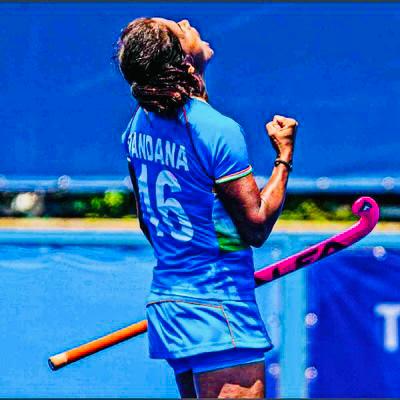
Vandana has been a pillar of strength for the women’s hockey team, having scored that all-important hat trick against South Africa in the do-or-die match which helped the team reach the quarter-finals of the competition.
Growing up
For a striker who has been representing the country for over a decade now, how did the love affair with hockey start? “When I was young, I used to play all kinds of sports. I first started playing hockey seeing my sister,” she said about growing up in Haridwar.
“As we were not financially very stable, I made hockey sticks out of tree branches and practised my moves, away from the prying eyes of the village elders who did not approve of me playing the game. My father was the only one who supported me.”
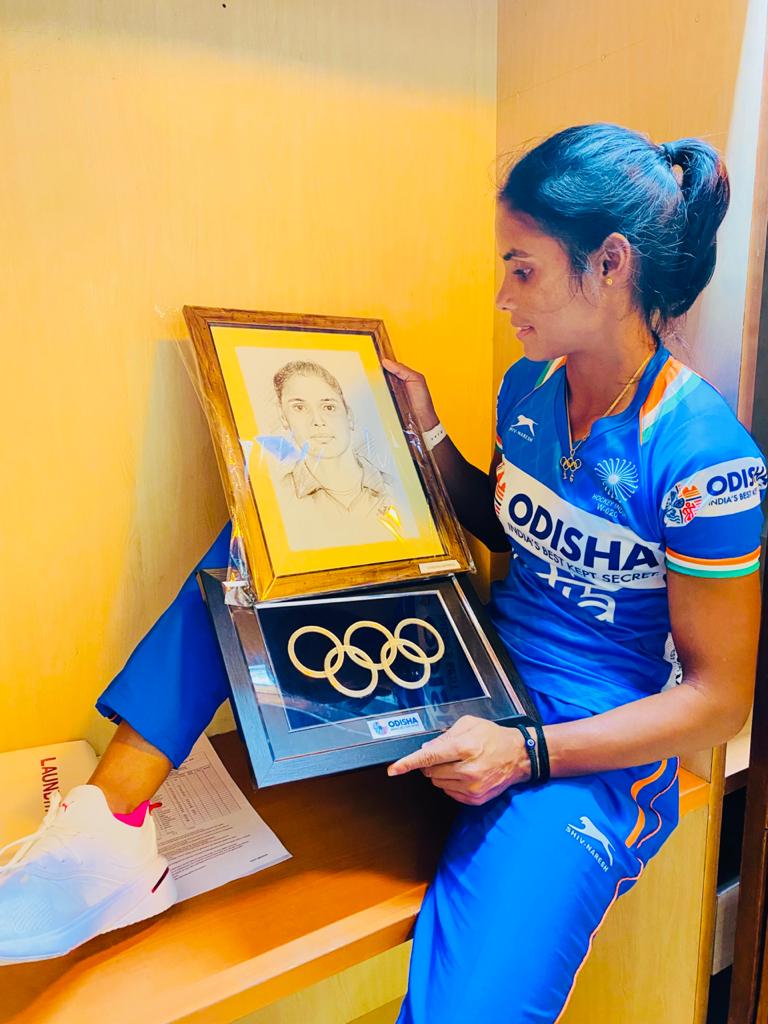
I first started playing hockey seeing my sister, says Vandana.
The backbone
The conversation drifted to Vandana’s father Nahar Singh. She got emotional. “He was my backbone,” she said taking care not to choke up.
“He always used to have my back. He kept telling me ‘concentrate on the game, don’t worry about anything else.’ In spite of the opposition from society and relatives, my father stood firm beside me. He accompanied me to matches, guided me and always encouraged me to do well.”
Three months before the Tokyo Olympics, her father passed away. “It was one of the toughest decisions I ever had to make (to not return home from the training). In the end, I decided it was better to stay in the camp to fulfil my father’s dreams,” the striker said.
How did she deal with her loss? Vandana thanked her teammates profusely, saying they always had her back and kept reminding her of the sacrifice she made by staying with the team well after her father’s demise.
Greatest show on Earth
Vandana was part of the team that qualified for the 2016 Rio Olympics after 41 years. After an unimpressive outing in that edition, the team collectively put in extra effort, the results of which were clearly visible in the Tokyo edition.
“After the 2016 Olympics, we recognised the areas we needed to improve on. We worked hard on our fitness, passing, off-the-ball running and shooting. Our coach, Sjoerd Marijne, helped us a lot, instilled belief in us, and pushed us to not settle for anything less than a medal.
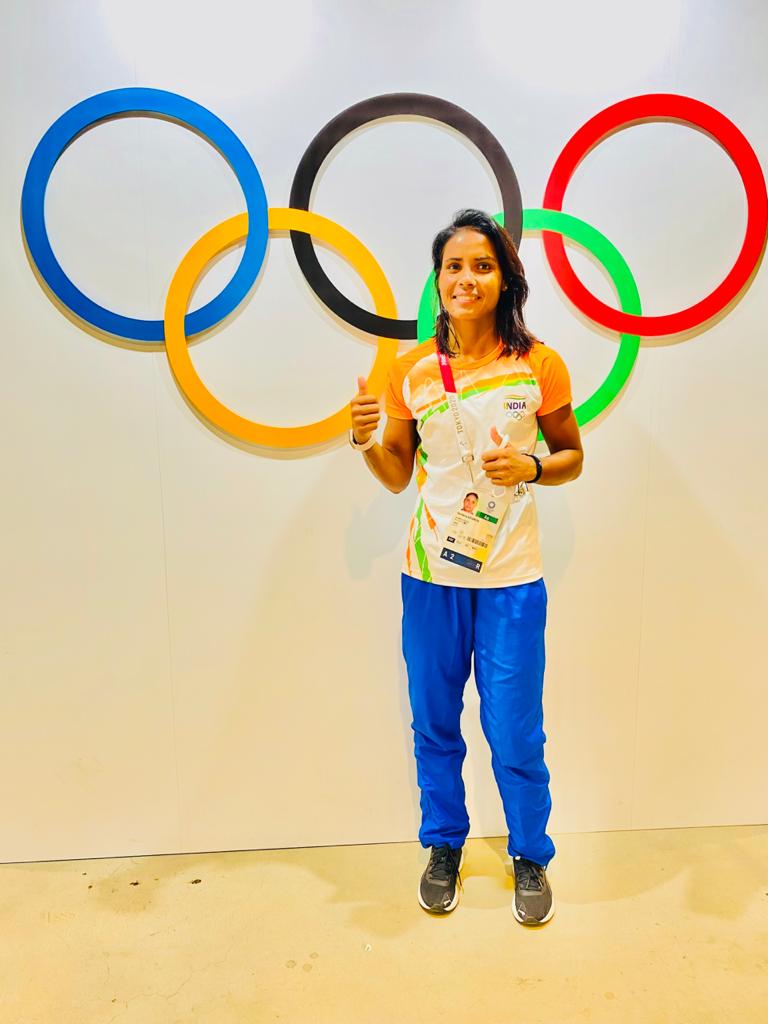
Vandana in Tokyo.
“We started our 2020 campaign with back-to-back defeats to Germany and Great Britain, the latter of which left our coach very angry. He was so upset that he did not have lunch with us. We vowed to repay his faith and fight till our last breath,” she said.
The Indian team peaked at the right time, defeating Ireland and South Africa to face Australia in the quarter-finals where they pulled off one of the biggest upsets of the tournament.
“Earlier, we used to be a bit scared of facing high-quality teams. Our coach taught us to take one game at a time, to not think too far ahead, and that approach worked wonders for us,” she said.
Change in life after Olympics
Vandana, like other team members, received a warm welcome at home after returning from Tokyo.
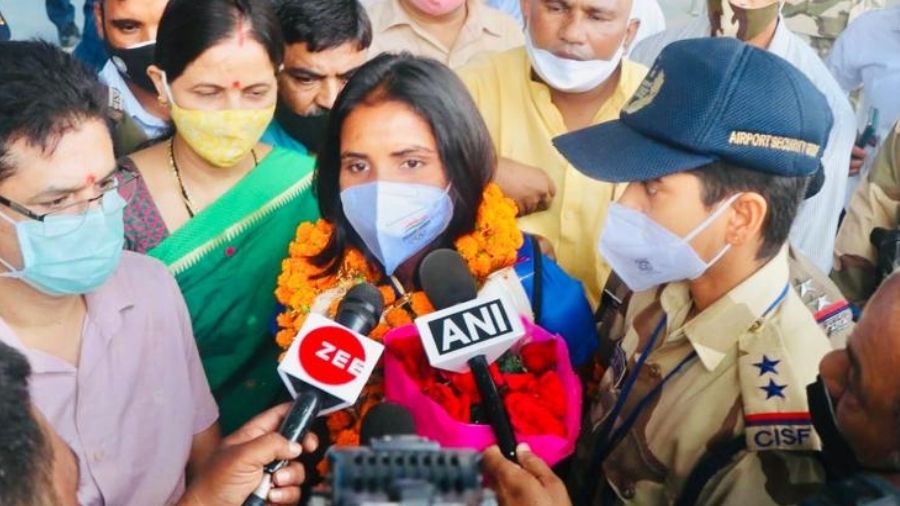
Vandana at Dehradun Airport after returning from Tokyo Olympics.
“Haridwar takes around 2 hours to reach from Dehradun airport. When I came home, the whole stretch was filled with people. All were waving at me, congratulating me. I will never forget the moment, I’m blessed to receive so much love from you all,” she said.
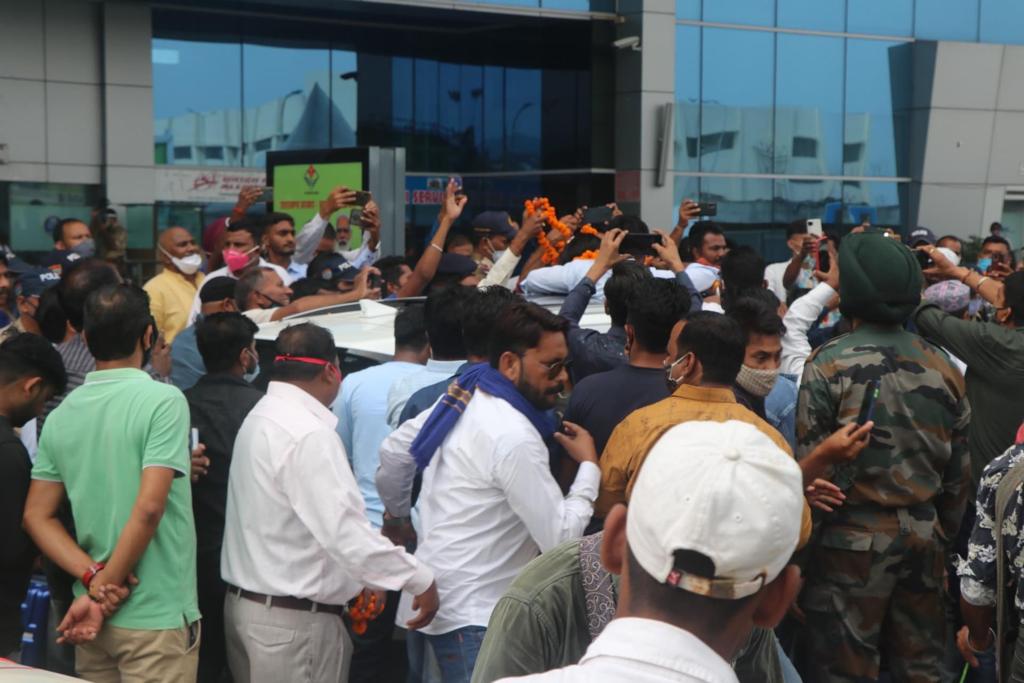
The crowd surrounding Vandana's car at Dehradun airport.
The huge influence the whole Indian team had on the younger generation is undeniable. Vandana feels very proud to be one of the catalysts to that change.
“Recently I went to my village, and everybody was talking about the game, sharing minute details about how our matches unravelled. Hearing them talking about us felt very good, more so because it was an indicator of how the young ones were taking an active interest in the sport.”
The Modi factor
On Prime Minister Narendra Modi's influence on the team, Vandana said, “Even before we left for Tokyo, the PM talked to each and every one of us, boosting our confidence. He also promised to meet all of us when the tournament was over.
“When we lost to Great Britain in the Bronze medal match, the whole team was upset. Modi ji called us and lifted our spirits. He told us that the whole nation was proud of us and this was just the beginning. Hearing the leader of the country utter such kind words cheered us up to a great extent.”
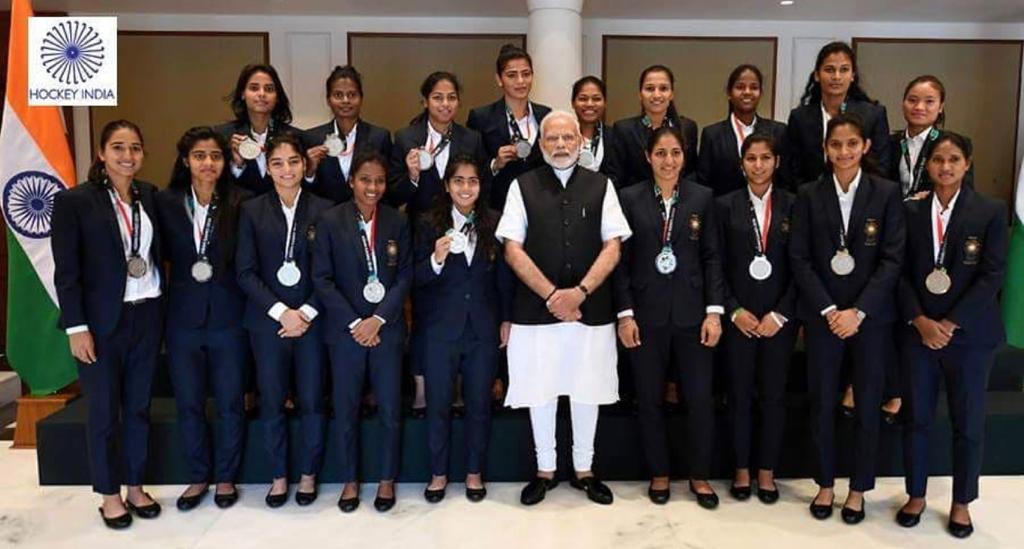
Prime Minister Narendra Modi with Indian women's hockey team. Hockey India
The PM met with the country’s Olympic contingent on August 16. Vandana was present at the breakfast meet and was left impressed by Modi’s communication skills.“The PM was very cordial. In spite of being such a busy person, he talked to all of us individually. He reiterated that he was extremely happy with our team’s performance,” she said.
Road ahead
“I have been very busy after coming back from the games. I’m barely getting any time for myself these days,” Vandana said.
Now, she yearns to get back on the field as soon as possible.
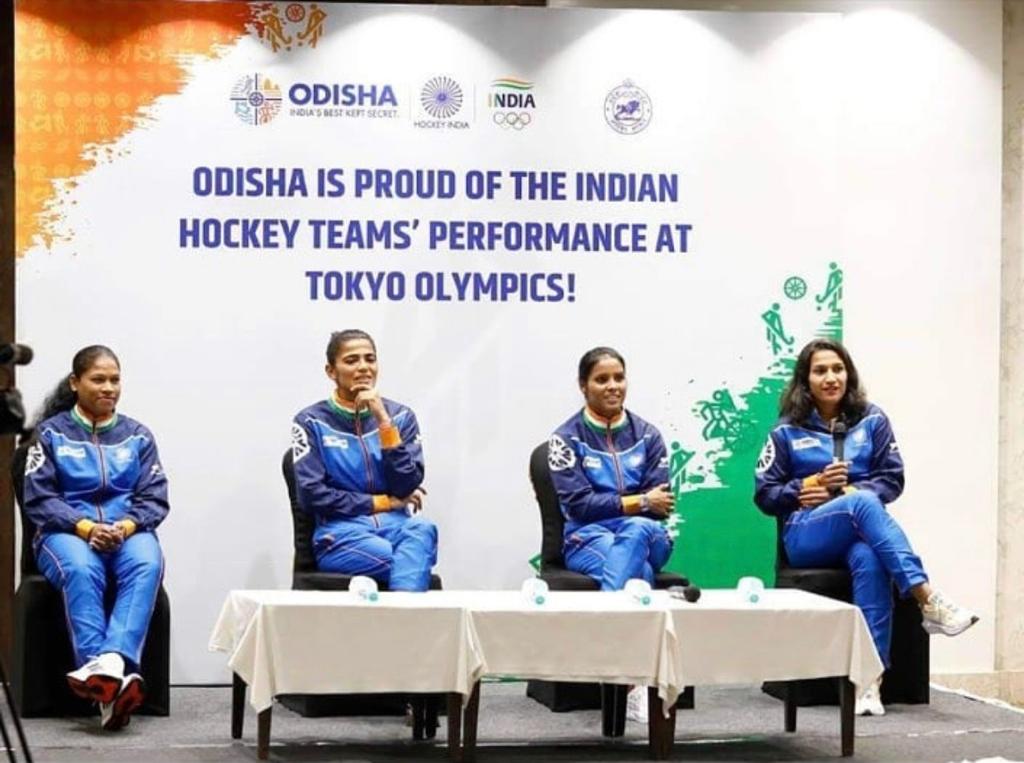
Vandana and other Indian team members of the national team being facilitated by Odisha govt.
“The date for the next national camp has not been announced yet, so I have the next few days to myself. We are not ready to rest on our laurels and aim to bring more glory to our motherland in the coming days,” she said, adding that when she hears a young girl wanting to play hockey seeing her, it gives her motivation to work harder.
What the future holds is unknown to us but for now, the general mood of the nation can be captured by her parting words, “Medal toh jeet nehi paayein, magar dil zarur jeetein hain. (We could not win the medal but definitely won hearts)”

